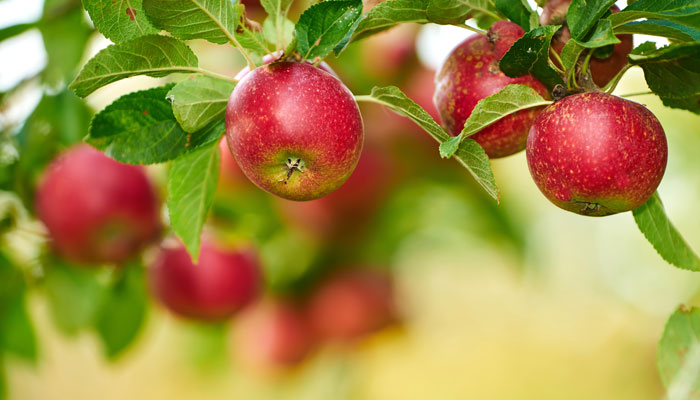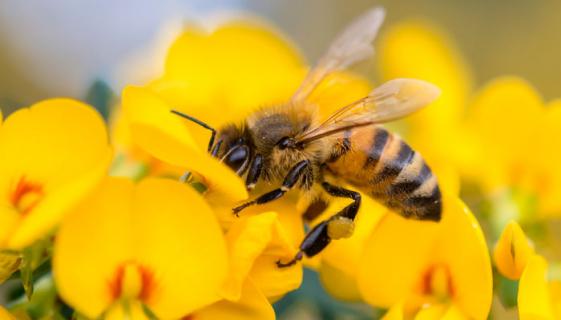Professor Debbie Haski-Leventhal has taught corporate social responsibility and sustainability – topics about which she is passionate – for more than a decade at Macquarie Business School.
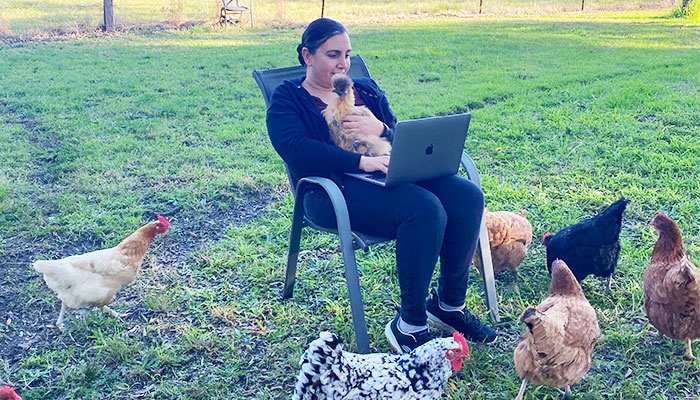
Home: Professor Haski-Leventhal at her property in Dural ... we can all take actions to ensure a sustainable tomorrow, she says.
Seven years ago, she bought an acreage property in Dural, a suburb in the north-west of Sydney, the land of the Dharug people, where she and her family aim to live as sustainably as they can.
To mark this year's International Women’s Day, with its theme of gender equality for a sustainable tomorrow, Haski-Leventhal is sharing 10 tips for sustainability based on her experience.
"These are just a few actions I take, and we can all take for a sustainable tomorrow," she says. "I won’t say 'to save the planet'. The planet will survive, but it may be uninhabitable for us and many parts of our beautiful ecosystem. We all need to act today."
1. Change of mindset
The transformation towards sustainable living begins with a shift in mindset. We can take many actions for different motivations, but unless we profoundly change our worldview, we will not be able to combat climate change, collectively or individually. We need to reconnect to nature and understand that we are only one part of a complex ecosystem.
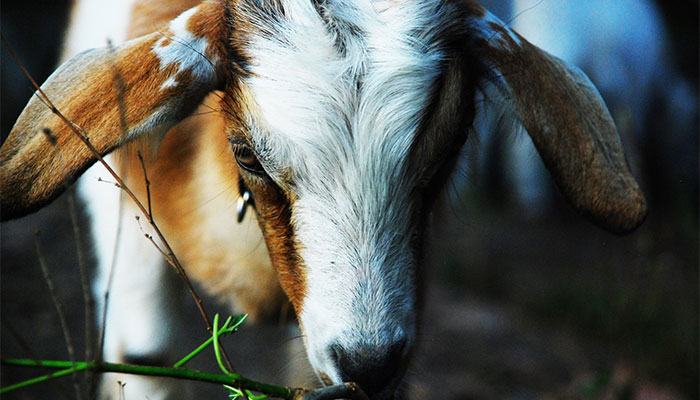
Sharing the planet: A solid connectedness with animals and nature is a must in order to safeguard the needs of future generations.
For so long, modern industrial society has felt it controlled the planet and used its resources selflishly.
This generation and the ones to come are now paying the price. A solid connectedness with animals and nature is a must if we are to address the needs of the present without compromising the needs of future generations.
To change our mindset, we can refer to this beautiful phrase: We do not inherit the Earth from our ancestors but borrow it from our children. Better yet, we do not own it at all.
2. Sufficiency thinking
I remember an ad I once saw: “I have enough clothes, said no woman ever.” But I have enough clothes; I have enough stuff. It doesn’t mean that I never buy things, but when I shop with sufficiency thinking, I usually don’t buy what I don’t need.
It is a fun activity for kids, many of whom believe cucumbers grow in the supermarket.
The global movement towards minimalism is a welcome one. Still, some people use it to throw away stuff to the landfill instead of reducing, repairing and avoiding, which is better than recycling and throwing away. There is no 'away'.
3. Consumption-free months
As part of sufficiency thinking and consuming less, we introduced consumption-free months in our house. We do not consume anything but food, petrol, and urgent items every March and September.
We note desirable items down and consider them the following months, usually seeing that we don’t want them anymore. Instead, we get to spend more money on experiences.
Everyone can do this, and it is an excellent exercise for the whole family.
4. Renewable energy
Moving to our Dural house, we installed 25 solar panels. It was not cheap, but it is one of the best investments we have made. Not only did it reduce our electricity bills by 50 per cent, but it also exponentially decreased our carbon footprint. We receive monthly reports stating our energy offset in tree numbers.
My next goal is to get a battery. I know that not everyone can do this, but most energy suppliers now allow you to opt for sustainable energy. You can also contribute to organisations that offset carbon emissions by planting trees.
5. Retaining rainwater
About 900 million people do not have access to clean water worldwide. I remember this number whenever I turn on the tap, and clean water flows out, often taken for granted. We had such a wet summer, and we do not want to waste this precious resource either.
We have three rainwater tanks of 20,000 litres each, which we use on our property. If you live in a house, you can buy smaller ones to water your garden or decide as a building to install one for the front lawn.
6. Growing veggies, fruit, and herbs
This is one of my greatest joys, especially when I take seeds from vegetables or fruit I bought in the supermarket and grow them into something new. It helps to reconnect to nature, and it is a fun activity for kids, many of whom believe cucumbers grow in the supermarket. I received a Vegepod for my last birthday - a fantastic and easy way to grow things.
Even if you just have a balcony, you can grow herbs and some veggies. It is also valuable with the current supply chain shortages.
7. The chicken or the egg
When we moved to Dural, we got four chickens who became our pets. Pumpkin, Mary Poppins, Martha and Matilda have since been joined by many more friends who are treated like queens. They reciprocate with beautiful fresh eggs and consume our scraps.
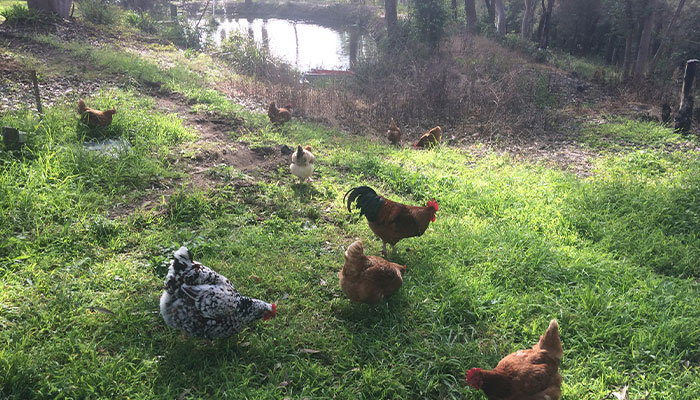
Thriving: Chickens, some of them rescued from battery cages, roam freely on Professor Haski-Leventhal's property.
I love animals, and we are vegetarians. I cannot bear to see what the egg and chicken industry does to these beautiful creatures, confining them in small spaces.
We now have around 30 chickens and roosters, some rescued from battery cages. They arrived so thin and sick, it was heartbreaking, but they later thrived.
I know most people cannot raise their chickens but reducing or avoiding meat consumption is one of the best things you can do for this planet.
8. Reducing waste
In a conference organised by Martina Linnenluecke in 2019, one of the speakers was a woman who managed to create zero waste. She either avoids, repairs, recycles or composts.
To feel less intimidated, it is helpful to join a movement like One Million Women and see the collective action.
We produce too much waste in our household despite all fresh scraps going to the chickens, donating what we can to Vinnies, and aiming to buy less.
We also buy many things from op-shops because they do not come in plastic. Still, there is much more we could do. There are excellent guidelines on zero waste that you can explore.
9. Using less fuel
This is a sore point. Living in Dural, public transportation is limited. I think twice before driving my car, which I checked for fuel-efficiency before buying.
Working from home helps tremendously, but I also need to consider car pooling, using public transport as part of the trip, or reducing my car usage altogether.
My next car will be electric, as I can charge it with renewable energy. Macquarie University encourages sustainable transport options such as public transport, cycling, walking, carpooling or mixing travel modes.
10. Be part of a bigger movement
The actions towards sustainability can sometimes feel too little. Sometimes I ask myself what the point of these actions is when so many individuals and corporates still pollute and waste. But I need to remind myself that many people are now making similar efforts.
The other day I asked my daughter not to use a plastic straw, and she said – "but it is just one small thing", to which I answered: “done by billions”. To feel less intimidated, it is helpful to join a movement like One Million Women and see the collective action.
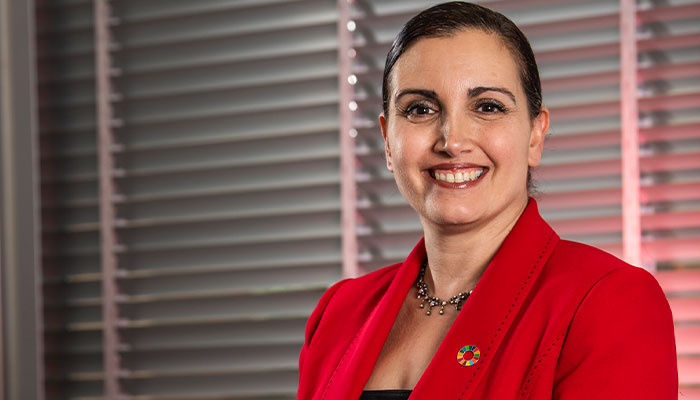
Debbie Haski-Leventhal (pictured) is a Professor in the Department of Management at Macquarie Business School.

